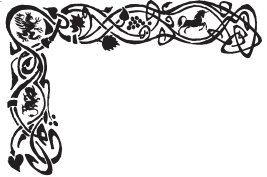







Paranoiac, the unconscious, irrational dreams independent of ego.. These come from a book on Dali (see Metamorphosis) whose delirius mind used the phrase “paranoiac-criticism” for the surreal process of associating disparate things. Associating different things is what pulp writers do, if one thinks of the influences on REH and the type-similarity to Lovecraft. Comic artists of the romantic type can have a paranoiac sense, a drawbridge mentality, if one thinks of the prickliness of BWS, and their influences are often multifarious; in Wally Wood one can see Caniff, Raymond, Crane.. a lot going on together. Romantic artists evoke a delirius reality that isn’t surreal but is far from “real”. Druillet from 70s Metal Hurlant is also of that almost morbid type.
Erotic rhythms, morbid blood-infested realities; like Byron (Aspects 1) one sometimes feels refreshed by the degradation of powerful imaginations. The blatant point is, while surrealism may go in for perceptual showmanship, the essence of degradation and regeneration is contained in these artists; the vines that twine, the cities that pine, Eros and Mars let loose on the pgae. Romance is like a branch that rejects straight-line thinking and is forever gnarled.
To “them” this might seem mad because they’ve been told they live in a world not of physique but of “fact”. In this world birth is the ultimate “non fact” because of its perfect timing and symmetry. It’s also fantastically messy, a delirius bloodbath of female fertility. Edmund Cooper, in Five to Twelve (73), caught our race to aseptic infertility with his “doms”; enhanced women who don’t breed and subjugate men. Dion Quern, a renegade poet, falls for one and neatly skewers her, after a bit of passion.
“Windswept words of brown and bronze whisper in avenue and lane
of subterranean midnight suns and broken journeys of the brain
Whisper of archaic lunar seas and pools of interstellar space
that whirl behind the frozen mask the stamped medallion of the face”
She turned to him. "You see, Dion, that's why I don't want you to walk into a grade two..Those kind of words will die. You know that."
He hit her. She didn't move. For several appalling seconds they stood staring at each other. Then suddenly he put his arms round her and kissed her on the lips. It was only about the third time he has ever kissed a woman because he really wanted to in his entire life. Her blue sari pressed against him, her breasts pressed against him. He was amazed that there was so much life in her body. It pulsed, it vibrated. It shivered and leaped. He tasted salt on her lips; and the salt taste was sweet.
"..I'm an authority on reproduction. I can tell you about toxaemia, prolapse, torn vagina, mastisis..Have you ever seen a baby's head crowning? Have you ever seen the new wrinkled skull, the matted tufts of hair, the flecks of blood, the thin halo of steam? Have you ever sniffed that sweet, overposering scent of birth?" Juno fled to the bathroom, retching. (page 110)
What seems to do for his matriarchal mate, Juno, is the description of sheer pungency that emanates from the womb, along with bloody detritus. The doms resemble the AI-ideal of Musk et al; the perfection they aspire to is bloodless and so essentially not female, womblike. Through the course of the book, Dion labels his mate a “shrivel-womb.”
This modern/anti-modern theme can be traced back to Bunuel (of Un Chien Andelou with Dali) and Belle de Jour. The dominant/submissive, flagellation, “binding” (see And God Created) - Catherine Deneuve’s erotic quest of release from mundanity. The opening scene of a seemingly unresponsive Deneuve being chased into a wood with horse crops flailing and implicitly raped turns out to be a dream, but throughout the film illusion and reality are poised precariously.
The arch romance unites disparate things. Is there a sort of link with the sinuous and submissive scenes of Brundage’s Weird Tales covers, the muscularity, the sensitivity, the seductive poise? Is there a type of delirium in the alluring images of bondage and passion amidst fallen idols? One could say that morbidity is there, but also unfailing optimism in the might of thews and animal instinct.
These are quite disparate associations, and it may be there is at base a reality to the “illusion” of heroic fantasy. Morbidity or degradation or the fallen idol are arch romantic symbols because they speak of regeneration, of the strength of the eternal cycle of matter. It speaks of a strength of primitive nature independent of human fact. Facts are depressing because they isolate us from the strength that is imbued by birth.
Birth is pure luck, the fortune of conception. There is a power there, as another quote from Five to Twelve indicates.
“How went the fertility rites?” she enquired coolly.. “Well enough, madam. But that was another country; and besides, the wench is pregnant.. an ovum sings when it is fertilized; and I have heard the sound of Musak.”
Juno laughed and ruffled his hair..”So you like her then?” “She appeals to my sense of the absurd.”
Power is in the blood (lyric from Buffy Sainte-Marie) and in the rivers and seas. The rhythm of life is bound-up in blood, and of the cosmos too. Anything else is a type of weakness, weakness that goes by the name of the DNA Dragon, the killing fact.
The ego-mongers want us to be DNA because they will build machines that engage in sex-by-proxy (DNA editing) for a hell of a lot of dosh. One cannot entertain a fact that ushers in weakness of body and soul. One has to believe in the rich pungency of fortune that ushers in another spring. Buds will grow along river-banks that are barren.
Fortune is in the blood, and blood is of the soil. This future is passionate and of the cycles of time that permeate the universe. The factoid kingdom we are in cannot participate in this; fortune is a type of faith in the future but for them there is no fortune.